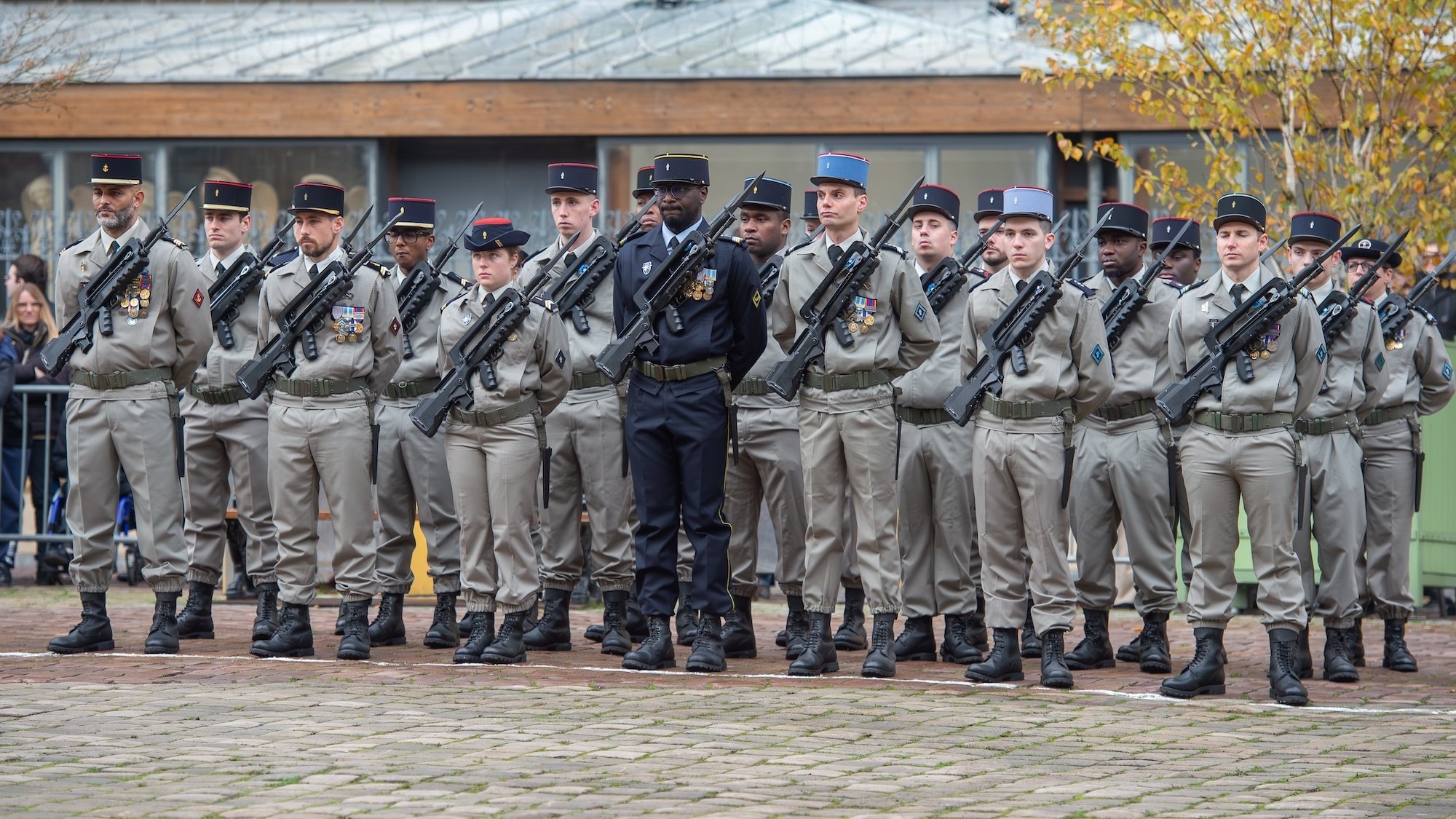« France must accept to lose its children ». This Tuesday, November 18, General Fabien Mandon, the highest-ranking officer in the French army, dropped this chilling statement in front of mayors gathered in Paris.
According to him, the nation must regain the « strength of spirit » necessary and accept to « suffer economically » to face a major conflict, particularly against a Russia that he believes is prepared for 2030. He calls upon elected officials to « talk about this in your communities » to prepare the minds, encourage civic engagement, and facilitate training and the placement of soldiers in their towns.
Voir cette publication sur Instagram
A shocking speech even among the most moderate politicians: how to prepare the population for a conflict when a government's role should primarily be to prevent it? Parisians, used to political and health alerts (the wave of attacks in 2015, the Yellow Vests in 2018, and the Covid crisis in 2020), but never confronted with war, now face a brutal message: one day, we might have to accept the worst.
La France doit accepter de "perdre ses enfants" : "Je m'interroge sur la portée du message" du chef d'Etat-major des Armées, réagit sur ICI Thierry Repentin, maire de Chambéry et ancien ministre des Affaires européennes, présent au Congrès des Maires #MaFrance @WendyBouchard24… pic.twitter.com/jgzUd4dqva
— ICI (@ici_officiel) November 20, 2025
The Pressure Survival Guide
To accompany these remarks, on November 20, the government published the guide Everyone is Responsible, 27 pages designed to «prepare the French for various crises», from armed conflict to nuclear disaster. The manual outlines a 72-hour survival kit (water, food, medications, warm clothing, battery-operated radio, cash) and emphasizes the importance of recognizing alerts and joining the citizen reserve.
Voir cette publication sur Instagram
Even though the official goal is educational, the message is clear: war is possible, and everyone must be prepared. In Paris, this approach is hard to resonate with: the city has never been used to thinking about survival in military terms, and most of its residents have neither training nor experience to face a real conflict.
A generational disagreement
Several surveys reflect this unpreparedness: while among the entire surveyed panel, a slight majority (53%) supports the reinstatement of mandatory military service, only 41% of those aged 18-24 back such an initiative, compared to 63% of those over 60, according to an Ipsos-CESI Engineering School survey released on March 16, 2025.
📊Selon un sondage Ipsos-CESI École d'ingénieurs, les Français se montrent en favorables au retour du service militaire (86%). Mais seuls 53% sont en faveur d’un service militaire obligatoire. Dans le détail, 32% seraient en faveur d’un service militaire obligatoire pour les… pic.twitter.com/UzUDtzC8dc
— L'Echiquier social (@EchiquierSocial) March 15, 2025
Young people, the ones who would be directly impacted and mobilized, overwhelmingly reject this idea (59%). But the divide isn't just generational; this same survey shows that favored social categories are more supportive, while working-class individuals, often lacking material security and a future, fear the risks for themselves.
Another sign of disengagement comes from the question « Are you willing to pay more taxes to increase the Defense budget to 5% of GDP, instead of the current 2%? » posed by the Cluster 17 institute in a large survey in May 2025: 56% say no, including 30% who are strongly opposed.
🗳️📊 Sondage | Dans le contexte actuel, la question du financement de la défense nationale est plus pertinente que jamais.
— Le Revenu (@Le_Revenu) March 11, 2025
👉Êtes-vous prêts à participer au financement du budget de la défense de la France ?
Once again, the divide is clear: the working and middle classes are strongly rejecting it, while the affluent classes are more open. The result is that even when we talk about military investment, the public is unwilling to contribute, showing they are not ready to concretely support a war policy. As a reminder, 1.2 million people live below the poverty line in the Greater Paris metropolitan area, which means a poverty rate that is higher than in metropolitan France: 18.3% compared to 14.9%.
Voir cette publication sur Instagram
A Preparation Far from Reality
Between martial speeches, official guides, and city maneuvers, there is still a huge gap between the army’s vision and the daily life of Parisians, even though the latter remains largely supported by public opinion. The recent abandonment of the National Universal Service (SNU) by Sébastien Lecornu, deemed too costly and unmanageable for the armies, is actually the most striking proof of this.
Le #SNU est une mascarade coûteuse. C'est potentiellement 2 milliards d'euros. Les faits et les témoignages montrent que l'encadrement n'est pas à la hauteur et que le SNU est parfois dangereux. @SVenetitay @SNESFSU sur @BFMTV 📺⬇️ pic.twitter.com/sm21MvGZ3U
— SNES-FSU (@SNESFSU) May 29, 2024
Moreover, many experts remind us of a simple fact: France is not ready. Neither materially nor psychologically. A lot of citizens are wondering what is the point of nuclear deterrence if, in reality, it does not protect them and yet they are being prepared to accept extreme sacrifices.
What if the real challenge was not just preparing the French for war, but thinking about how to prevent it from ever happening? In a city like Paris, amidst citizen concerns and military speeches, the question remains open.
